For more Details on Our Product click here ![]()
*https://pubs.spe.org/en/ogf/ogf-article-detail/?art=3566

According to the surveys an Indian average individual uses around 150-200 ltrs of water each day out of which only 10 ltrs is consumed for cooking and drinking purpose and rest other goes in other activities like cleaning, flushing and bathing.
"Its unfortunate to say that in current time, fresh water is one of the most violated natural resource. It’s just taken very lightly, and if the things will continue the way they are in present condition, imagining Indian cities coming to a state worse than Cape town, is not a distant reality,” according to Col Shashikant Dalvi, a Pune-based water conservationist.
There are agencies and group of researchers continually working in India and coming up with so many great innovations and working towards sustainable development.
The breakthrough innovative technology of the Taraltec® water disinfection reactor can be retrofitted into a hand pump it is a game changer in eliminating water borne diseases. With no need for any consumables, the Taraltec® reactor is a maintenance free device for a lifetime of use, anywhere in the world. This retrofit takes less than an hour, and can even be done by a local fitter with no specialised training or tools.
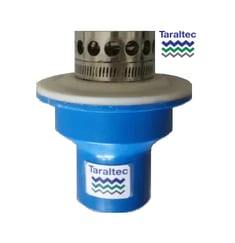
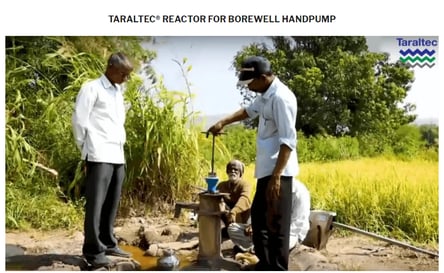
The Scientific Principle propelling the Taraltec® Reactor is inspired by bio mimicry. In nature, a snapping shrimp (Alpheidae) attacks its prey by shooting a jet of water by snapping its claw, causing the ambient pressure to go below the vapour pressure and a void or cavitation bubble is formed. On recovery of the pressure the bubble implodes with an intense localized energy release, with temperatures to the extent of several thousand degrees, pressures of several hundred bars with intense shear & turbulence. This energy is harnessed to create precise conditions for physically killing microbes.
The Taraltec® Reactor is eco- friendly and requires no fuel or electricity to work.
“The device converts the kinetic energy of the fluid into millions of targeted micro-bubbles each acting as localised reactors. This generates extreme heat, pressure and turbulence that release intense energy packets during the collapse of bubbles. The resultant shockwave, marked by a bang sound, lacerates and kills the microbes. The water, which is 99% safer than it was earlier, then emerges from the borewell or pump into the hands of those drawing it,” he explains.
Its becoming a wonderful startup and one of the good imitative to store rainwater. A great solution for sustainable future for India. This innovation is in to modular tanks made out of recycled plastics to store rainwater and can be fitted underground.
‘Retas’ provides a smart resolution of utilising the abundance of rainwater to meet the post-monsoon water scarcity in Gurugram.
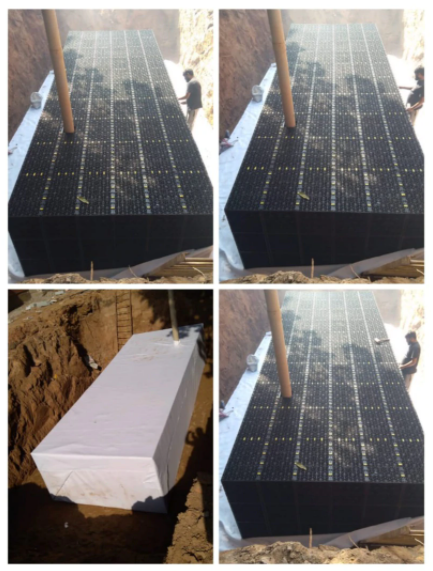
With recycling plastic as one of the prominent additional benefits of their venture, they created a new rainwater harvesting model called the Rainmaxxx.
Recycling water is nothing new, there are so many buildings and its becoming a regulatory compliance to install their own STPs (Sewage Treatment Plants) the water is usually used to water plants, flushing the toilet, or other cleaning purposes.
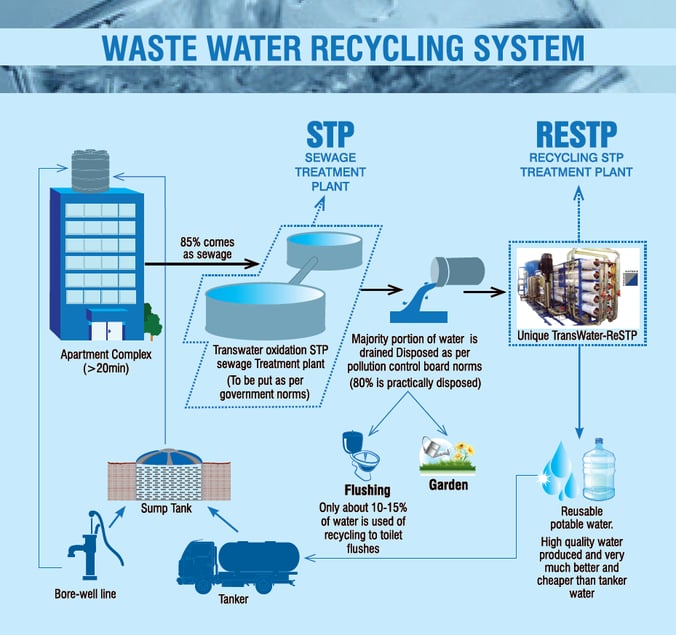
The idea of consuming recycled water has never been a welcome change, mainly due to discolouration and odour in the water owing to inefficient treatment and filtering.
With a vision to raise awareness about water recycling and make it drinkable, TransWaters which is also formerly known as Blorebuy came with an innovation to covert this processed water in to drinkable water.
Beltecno is one of the major supplier of stainless steel panel tanks to fulfill the need of storage of potable water in industries and commercial areas in more hygienic manner.
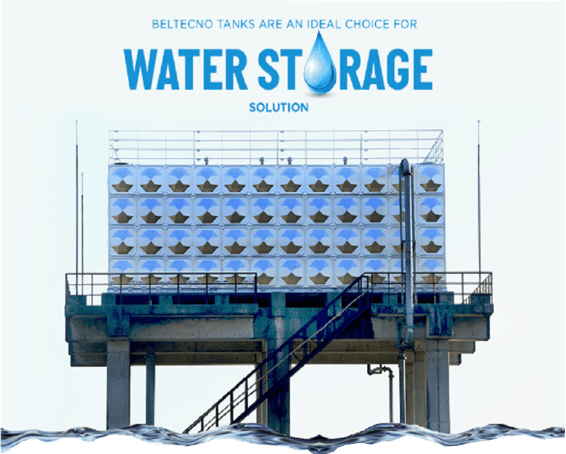
For more information regarding our stainless steel panel tanks download our product brochure by clicking the button below, drop us your requirement on sales@beltecnoindia.com or call us on any of given numbers +91 9116009580/+91 7300084028
For more Details on Our Product click here ![]()
*https://pubs.spe.org/en/ogf/ogf-article-detail/?art=3566